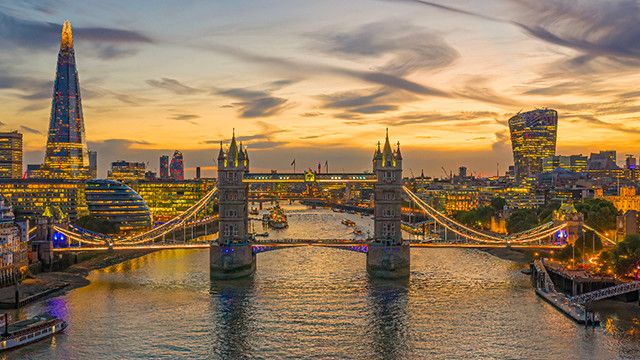
Unraveling the Intricacies of London Property Laws
London, a bustling metropolis known for its rich history, iconic landmarks, and diverse culture, has always been a sought-after location for property investment. However, navigating the complexities of London property laws can be quite the challenge for both locals and foreigners alike. In this comprehensive guide, we’ll dive deep into the nitty-gritty of London property laws, providing valuable insights and answering the most pressing questions to make your property journey a smooth one.
London Property Laws: The Basics
Property Ownership Types
In London, there are two primary types of property ownership: freehold and leasehold. Understanding the differences between these is crucial, as they come with varying rights and obligations.
Freehold
Freehold ownership grants the property owner full control and ownership of both the property and the land it sits on. Freeholders have the responsibility of maintaining the property and are not subject to ground rent or service charges.
Leasehold
Leasehold ownership, on the other hand, grants the owner a temporary right to the property for a predetermined period, known as the lease term. The land remains in the freeholder’s possession, and the leaseholder must pay ground rent and service charges. Leaseholders also need to seek the freeholder’s consent for major alterations or improvements to the property.

London Property Laws
Property Acquisition Process
Finding a Property
First things first, you’ll need to find a suitable property. This can be done through estate agents, property portals, or by contacting private sellers directly.
Making an Offer
Once you’ve found your dream property, make an offer through your estate agent or directly to the seller. Keep in mind that London property laws allow the seller to accept or decline your offer without any legal obligations.
Conveyancing
Conveyancing is the legal process of transferring ownership of the property from the seller to the buyer. It involves various tasks, such as conducting property searches, drafting contracts, and managing the transfer of funds.
Exchanging Contracts
Both parties sign and exchange contracts, making the transaction legally binding. At this stage, the buyer typically pays a deposit, and a completion date is set.
Completion
On the agreed-upon completion date, the buyer pays the remaining balance, and the seller hands over the keys to the property.

London Property Laws
Navigating the World of Mortgages
Types of Mortgages
Mortgages are a popular means of financing property purchases in London. There are several types of mortgages available, such as fixed-rate, variable-rate, and interest-only mortgages, each with its unique features and benefits.
Applying for a Mortgage
To apply for a mortgage, you’ll need to provide proof of income, credit history, and details of the property you wish to purchase. Lenders will assess your affordability and creditworthiness before approving your mortgage application.
Stamp Duty Land Tax
Stamp Duty Land Tax (SDLT) is a tax payable by property buyers in England and Northern Ireland. The amount of tax you pay depends on the property’s value and your circumstances, such as whether you’re a first-time buyer, purchasing a second home, or buying a rental property.
London Property Laws: Landlord and Tenant Rights
Both landlords and tenants have rights and responsibilities under London property laws. It’s essential to be aware of these to ensure a harmonious landlord-tenant relationship.
Landlord Responsibilities
Landlords must ensure their rental properties are safe, habitable, and comply with health and safety regulations. They are also responsible for maintaining the property’s structure and exterior, providing necessary certificates, and protecting the tenant’s deposit in a government-approved scheme.
Tenant Responsibilities
Tenants, on the other hand, are responsible for paying rent on time, taking care of the property, and promptly reporting any repairs needed. They must also follow the terms of the tenancy agreement and respect the landlord’s rights.
Tenancy Agreements
A tenancy agreement is a legally binding contract between the landlord and tenant, outlining the terms and conditions of the rental arrangement. It typically includes information such as rent amount, payment frequency, and duration of the tenancy.
Ending a Tenancy
Both landlords and tenants have specific rights and procedures to follow when ending a tenancy. Landlords can end a tenancy by serving a Section 21 or Section 8 notice, while tenants can end a tenancy by giving proper notice or mutually agreeing with the landlord.
Frequently Asked Questions About London Property Laws
1. Can foreigners buy property in London?
Yes, foreigners can buy property in London. There are no legal restrictions on property ownership for non-UK residents, but they may face higher Stamp Duty Land Tax rates and additional taxes if purchasing a residential property.
2. Are there any restrictions on renting out a property in London?
Landlords must ensure their rental properties comply with London property laws, such as obtaining the necessary licenses, meeting health and safety regulations, and adhering to the tenant’s rights. Additionally, leasehold property owners may require the freeholder’s permission to rent out their property.
3. What is the minimum lease term for a leasehold property in London?
There is no minimum lease term for leasehold properties in London. However, mortgage lenders typically require lease terms of at least 70-80 years remaining to approve a mortgage application.
4. Can I extend the lease on my leasehold property?
Yes, you can extend the lease on your leasehold property. London property laws grant leaseholders the right to extend their lease by 90 years for flats and 50 years for houses, provided they meet specific eligibility criteria.
5. What happens if I don’t pay my ground rent or service charges?
Failure to pay ground rent or service charges can lead to legal action by the freeholder, including repossession of the property through forfeiture proceedings. It’s essential to address any payment issues promptly to avoid potential legal complications.
6. Can I make alterations to my leasehold property?
Leaseholders may need to seek the freeholder’s consent before making significant alterations or improvements to their property. The terms of your lease will outline any specific restrictions or requirements.
Understanding London property laws is vital for anyone looking to buy, sell, or rent property in the bustling city. From property acquisition to landlord-tenant rights, being well-versed in the legal intricacies can help ensure a smooth and successful property journey. We hope this comprehensive guide has provided you with valuable insights and answers to your most pressing questions regarding London property laws.
Related Articles;





